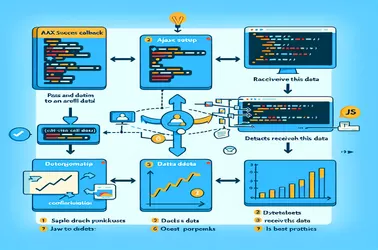Files must frequently be dynamically generated for modern web applications without being stored on a server. For heavily trafficked APIs that process user data and deliver downloadable material in forms such as XML, JSON, or CSV, this technique is essential. Using JavaScript's Blob feature and AJAX, developers may effectively manage file downloads. While stream processing maximizes efficiency for huge files, proper authentication guarantees secure access. A well-designed download system improves user experience by avoiding browser crashes and facilitating smooth communication. Scalable, real-time online applications require this strategy for anything from automated report generation to safe data exports.
When using AJAX in ASP.NET Core Razor Pages, running into a 400 Bad Request error might be a challenging obstacle. Usually, this problem occurs when request data is distorted or does not fit the server-side model. Data binding, content kinds, and FormData handling are important topics to focus on. These issues may frequently be fixed by making sure that every data point—including file attachments—is appropriately specified in the AJAX request, allowing for efficient data processing and successful server connectivity. AJAX is more dependable for applications that need dynamic, real-time data interaction because to these enhancements.
The common problem of getting a 400 31 response and a "No image provided" error while uploading an image using AJAX in a Django project is addressed in this article. Inappropriate handling of file uploads or a misunderstanding between the frontend and backend are usually the cause of the issue. Using FormData in jQuery, the paper provides techniques to guarantee proper transmission of picture data.
This tutorial looks at utilizing XMLHttpRequest to transport data from PHP to JavaScript without having it show in the browser. Maintaining the data's transparency while enabling JavaScript to process it is a difficulty. Although other techniques were investigated, including cookies and HTML data embedding, the secret is to use JSON to manage data in the background.
One of the most frequent JavaScript challenges is passing data from an AJAX success callback to another function. The issue at hand is to the transfer of weather data obtained using AJAX to Chart.js. This article explains how to parse the response, send it to a different function, and show the outcome in real time.
While using Ajax for asynchronous activities in WordPress improves user experience, it may complicate the delivery of emails.





